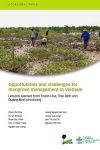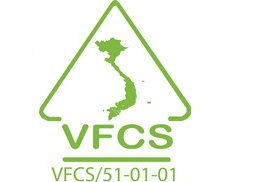Le Dinh Kha
SIGNIFICANCE OF GENETIC DIVERSITY CONSERVATION IN FORESTRY
Vietnam has tropical forest with abundant and diverse tree species. In particular Pteridophyta, Gymnospermae and Angiospermae have approximately 11,000 species belonging to 2,500 genera, of which about 1,900 species are in use (Tran Dinh Ly et al, 1993). However, due to the destruction of natural forests for fuel wood and other special products, the replacing of forest trees by agricultural crops, overburning of forest land for crops and forest fire as well as the chemicals used by the Americans during the war, natural forests have been seriously destroyed the gene pool rapidly eroded and some rare, valuable tree species are in great danger of extinction.
On the other hand, forest planting has concentrated on using only some cultivars which reduce the ability to use the genetic diversity available in our country (Le Dinh Kha, 1990).
Experience obtained throught the world and in Vietnam has shown that when concentrating on exploitation and planting of some cultivars having a high yield, we have forgotten the gene pool which has a specific value or resistance against adverse conditions. When agriculture developed such cultivars, traditional cultivars were lost. Therefore, at present, we can find indigenous crop species or animal breeds only in buffer zones or in areas where minority people live, while on the flat plain, there are mostly hybrid cultivars or other high yields. For example, according to the investigation by the Agriculture Science Institute of Vietnam ( Nguyen Huu Nghia, 1994), 85-92% of rice cultivars in Thuan Chau (Son La), Hoa An (Cao Bang) and Son Dong (Ha Bac) are indigenous, while in all the provinces on flat plains, mainly new cultivars with high yield are grown.
Latest news
- Project: Commercial-scale yield trial and completion of planting techniques for newly recognized acacia hybrid cultivars (BV586, BV376, BB055, BV584, BV523, BV434, BV350)
- Project: Research on selection and breeding of Acacia hybrid and Acacia auriculiformis for timber plantation in main ecological regions
- National seed orchard of Pinus merkusii
- National seed orchard of Acacia auriculiformis
- National seed orchard of Acacia mangium






